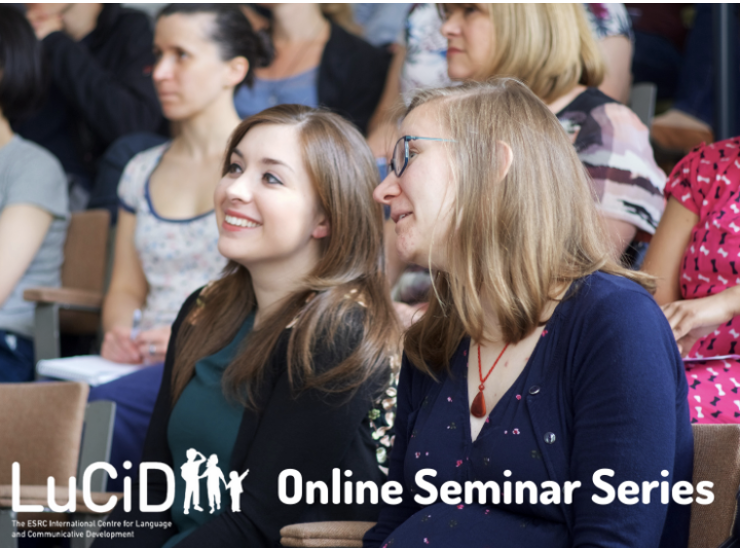
Our next LuCiD seminar is on Tuesday 1st February (11am UK time). Dr Liam Blything (University of Liverpool) will talk about Exploring the role of information structure in understanding pronouns.
Abstract: First-mention and Grammatical Role are well-established in the literature as cues used by adults and children to resolve ambiguous subjective personal pronouns (e.g., “he”). In “The doctor wanted to hug the magician, but he was much too small”, both these cues would combine to bias the interpretation towards "the doctor". However, children’s first mention and subject preference in pronoun resolution is less stable and appears later in the processing time course than in adults. I will first present our evidence that, like adults, children have clearer preferences in resolving ambiguous pronouns when a combination of cue features are aligned, and that the misalignment of these cues poses an even greater challenge for children. I will then turn to our work on the role of information structure cues like prosodic linguistic focus marking (e.g., stressing THE DOCTOR in the example above). Although it is well established that information structure cues can guide listeners’ attention and memory for the focused part of the utterance, it is unclear whether this is used to help process ambiguous pronouns. Similarly for children, as evidence suggests that sensitivity to linguistic functions of focus marking starts to appear between 3-6 years of age, we asked whether information structure can help to establish an adult-like first mention and subject preference, or whether it can override it in the case of object focus. I will present our recent evidence, which aims to address these questions by using visual world eye-tracking. While our results confirmed that focus affects “online” pronoun processing, they also showed that the final “offline” interpretation of the referential relations in the dialogues was not affected by focus, but driven by the constraints pertaining to the particular pronoun and the mental representation of a coherent discourse.
How to join the seminar: Our seminars are currently online, free to attend & booking isn't required, just get in touch to request the zoom link or to join the seminar mailing list.
